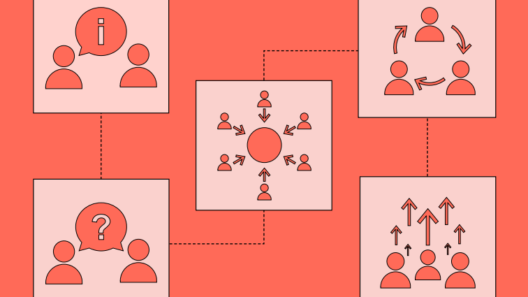Participatory data governance
Enabling a participatory approach to data use, access, sharing and governance where beneficiaries can control and oversee the use of their data.

Project background
Getting the governance of data right and collecting, storing, sharing and using data responsibly is key to unlocking its potential for people and society. The vast amounts of rich data which exist in the world can help conduct health research, make cities more environmentally friendly, empower consumers and communities, and more.
But there is also a ‘data trust deficit’: trust in those who use data is currently low. To realise the potential of data, we must ensure its use is trustworthy. This means getting the governance of data right: ensuring it’s collected, gathered, shared and used responsibly on behalf of people and society.
As datafication and the increasing adoption of mechanisms such as artificial intelligence about some of these sensitive questions continues to grow and intensify, there is a strong imperative to enable ways of engaging people in the governance of their data. A range of models and approaches have been proposed.
It is clear from our existing work that there is a no ‘one size fits all’ solution, but rather, that there is a case for learning from existing practice. And so the Ada Lovelace Institute’s work on participatory data governance will start from exploring best practice to inform the development of a practical account of how those building, designing and developing data sets for the public benefit can move across the spectrum of participation – from being ‘informed’ about the use of their data, or simply ‘consenting’, towards meaningful control and empowerment.
Project overview
Among this landscape, data stewardship has emerged as a concept that responds to that all-important question: what data practices enable the use of data for public or social good?
The concept of ‘data stewardship’ can help think through aspects of trustworthy and responsible data use. It’s key to protecting the data rights of individuals and communities and unlocking the benefits of data in a way that’s fair, equitable and focused on social benefit.
But it is not possible or desirable for one person or organisation to decide what a ‘good’ use of data is. And so across a series of posts for our blog, researchers and practitioners working in different organisations and contexts, who each have a unique perspective on data stewardship, share practical experience and research ideas which help push forward thinking on how to govern data for good and ensure diverse voices contribute to defining it.
In Participatory data stewardship, we have proposed a ‘framework for participatory data stewardship’, which rejects practices of data collection, storage, sharing and use in ways that are opaque or seek to manipulate people, in favour of practices that empower people to help inform, shape and – in some instances – govern their own data.
Data stewardship: a blog series
Data stewardship: an archival perspective
Archives as datasets? What can we learn from archivists in data preservation and sharing?
Strength in numbers: a case study for building a data-based community in cystic fibrosis
Now, more than ever, data can be used to bring people together as well as numbers.
Working with the CARE principles: operationalising Indigenous data governance
Shifting the focus of data governance from consultation to values-based relationships to promote equitable Indigenous participation in data processes.
Common governance of data: appropriate models for collective and individual rights
From Elinor Ostrom’s design principles for governing the commons to mechanisms that ensure collective and individual data rights: what steps to take?
Practising data stewardship in India, early questions
How could data stewardship help to rebalance power towards individuals and communities?
Doing good with data: what does good look like when it comes to data stewardship?
Data can help tackle the world’s biggest challenges, if we ask the right questions about governance and apply principles for stewardship.
Exploring principles for data stewardship: a case study analysis
Defining data stewardship is not a simple task. Elinor Ostrom’s principles for governing the commons have been posed by some as offering interesting avenues for thinking through what data stewardship might look like. Building on that work, we have adapted Ostrom’s principles to governing data for social good and drawn together a set of case studies mapped against them.
These case studies are a step towards answering the questions of data stewardship. Our approach is inspired by Ostrom herself, who gathered thousands of examples of how shared resources are managed in the real world in order to develop her principles.
We believe this set of case studies is a rich resource. Rather than leaving it to sit in our shared folders or in a report appendix, we share it openly so that other researchers, practitioners or anyone curious may analyse them, critically engage with our approach, draw their own conclusions, and ultimately use this resource to inform their own thinking.
We will also share our own analysis in a forthcoming report, and we’re exploring other ways to surface these case studies and allow audiences to engage with them more creatively.
Explore our data stewardship case study analysis
Project publications

Participatory data stewardship
A framework for involving people in the use of data
Related content

Rethinking data and rebalancing digital power
What is a more ambitious vision for data use and regulation that can deliver a positive shift in the digital ecosystem towards people and society?

Exploring legal mechanisms for data stewardship
A joint publication with the AI Council, which explores three legal mechanisms that could help facilitate responsible data stewardship

Rethinking data and rebalancing power: building a digital ecosystem that works for people and society
This virtual event aims to catalyse discussion by convening organisations to share their reflections on building a more positive future for data.